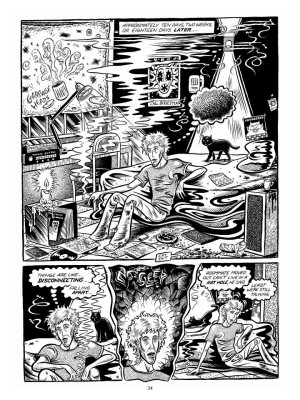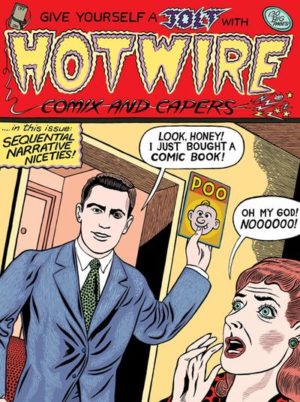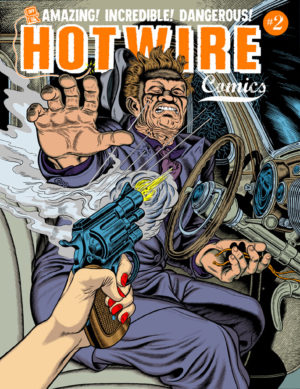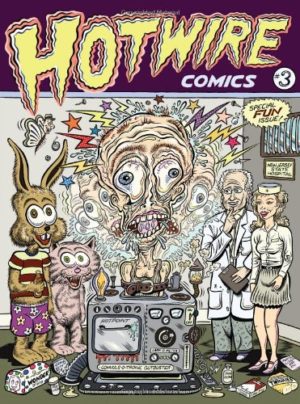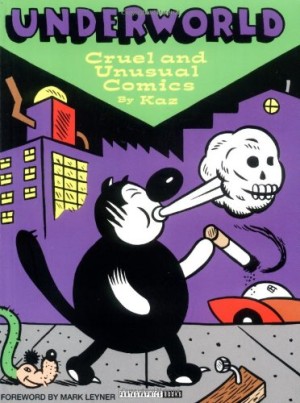Review by Frank Plowright
Glenn Head has single-handedly perpetuated the spirit of 1960s style underground comics decades after the form died, and is always an interesting artist when chanced across in anthologies and his own rare comics. Chicago is his longest work to date, presenting a remarkable and vivid look at his youth.
The teenage Head leaves New Jersey for art college in Cleveland, then drops out to move to Chicago believing he’ll be able to sell comic strips to Playboy magazine. As is the case for most idealists, reality doesn’t conform to his expectations, and begging for change in poor neighbourhoods isn’t the life he envisaged. While this adherence to vague ideas of a life on the edge isn’t presented with any element of shame, the impression given is that Head is extraordinarily unsentimental about his rudderless younger self.
It’s possible Head’s being unduly harsh on that person, as he’s far from likeable, unanchored principles about authenticity blinding him to what reality is in the face of constant reminders. These include his fellow art school students supplying a Greek chorus of approbation and judgement regarding his antagonistic attitude, and the proof of his own eyes in the streets. When some breaks do come his way, Head’s attitude at the time is more acceptance than gratitude. Playboy cartoon editor Skip Williamson eventually helps him out, and were it not for the generosity of a train driver named Aaron, Head might not have survived his first night in Chicago. This is, however, all presented through the knowing lens of hindsight, and the impression as the memoir continues is of Head laughing along with the audience.
Head’s densely cartooned pages are excellent, channelling the both the mood of the 1970s and the cartoonists who’ve influenced him. There’s an inspirational cameo from Muhammad Ali, during which Head nails his charisma in 1960s underground style. At one point Head shows his work to Robert Crumb, who comments that he’ll go blind adding all that detail. We should be grateful it was more advice ignored as the heavily populated street dioramas are mini-masterpieces of run down desperation. You can almost smell them. The detail also extends to surreal tripping out scenes, every bit the match for the best of their inspirations, and to the finer elements fleshing out a story. At the same time as Head tells his father about Aaron’s selflessness a black maid works in the kitchen. His father’s bookshelf has a book about problem children, and signage perpetually sells a world at odds with the surroundings.
Even for the airheaded younger Head it seems the penny eventually drops, yet once secure any thought of the world not revolving around him again elevates to a disturbing final scene. This long violent night in the basement is profoundly disturbing, yet presented in a very matter of fact manner.
An extensive coda set in 2010 could stand alone, but elucidates that no life decision lacks consequences and there are some things you never leave behind.
It’s odd that Head has taken so many years to produce his first graphic novel, but Chicago offers enough clues as to why. It’s unapolagetic, unflinching and compelling, and recommended well beyond those with an interest in underground comics.

